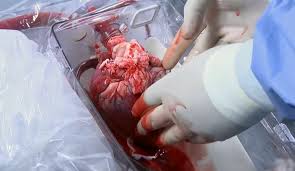Introduction
A heart transplant is a complicated medical procedure conducted to replace the damaged heart of the patient with the healthy heart of a deceased donor. A heart transplant is advised to the patients whose health continues to deteriorate in spite of medications and other treatment procedures. You can expect a reasonable survival rate after a heart transplant if you take the right post-surgery precautions. Keep reading to understand the process in detail.
During the Surgery
You see, heart transplant procedure is an open-heart surgery that takes several hours to conclude successfully. In case you have already undergone heart surgeries in the past, the time and complication both can increase. Here are the steps of this surgery:
Medication – The doctors will give you general anesthesia that will make you sleep before the procedure starts. You will then be aligned to heart-lung bypass equipment that will maintain a healthy oxygen level in your body.
Surgery – The surgery will start with an incision in the chest. The rib cage and chest bones will be open apart to enable the surgeons to reach the heart. The diseased heart is then replaced with a healthy heart. The surgeons will attach the crucial blood vessels to the new organ. Generally, the new organ will automatically start beating on receiving the blood blow. But, at times, an electric shock is also required to start the heartbeat.
After the Surgery
You will be under strict medical supervision and medications to stabilize your condition post-surgery. You will be attached to a ventilator that will help you in breathing. The tubes will be attached in your chest to drain out fluids from your heart and lungs. Medication can be given through IV and fluids. You might require spending some days in ICU before shifting to a regular room and discharging you from the hospital.
But that’s not all! You will be required to come for regular health check-ups at the transplant center. You can also choose to take home in the vicinity of the hospital for at least the next three months. Your doctors will also monitor any abnormal symptoms like breathlessness, nausea, headaches, weight loss, and fatigue.
The doctors will conduct regular heart biopsies to check if the new heart is entirely accepted by the body or not. However, the frequencies of this will reduce over a while. A tube is inserted from the neck directed towards the heart to check its status. A small sample of the heart is taken out for examination after that.
Heart transplants were never natural on the body! You might need to introduce some life-long measures to maintain a healthy heart. An immunosuppressant is useful in preventing your immune system from attacking your new heart. The side effect is that you can become prone to several infections. Further, antifungal, antiviral, and antibacterial medications are also given to control diseases.
It is crucial to follow a strict diet plan, therapies, and medications after heart transplant surgery. Make sure you adhere to your doctor’s instructions completely. Consuming alcohol, tobacco, or smoking is strictly prohibited after this surgery. Connect with your doctor immediately if you identify any unusual signs and symptoms.
Nutrition and Diet
It is crucial to maintain a healthy weight after transplant surgery. Make sure you follow your dietician’s instructions correctly!
- Eat lots of fresh vegetables and fruits every day
- Consume low fat or fat-free milk products only
- Altogether avoid trans fats, saturated fats, and unhealthy fats
- It would be best if you only ate lean meats like poultry or fish
- Consuming whole-grain bread and cereals will be healthy for your heart
- Stay hydrated throughout the day. Drink lots of water and juices every day
- You should maintain a low sodium diet
- Adhere to food safety guideline to keep the infection in check
- Make sure you avoid grapefruit and grapefruit juice at any cost as it can hamper the effect of immunosuppressant
Support and Coping
It’s natural to feel overwhelmed or anxious during the entire process. But it would help if you tried to maintain your calm and stay positive. Join a support group where you will meet people who have survived this surgery successfully. Try to collect as much information as you can about this. Feel free to discuss all your concerns with your doctor.
Exercising and other mild physical activities are also essential to maintain a healthy and active heart. Consult your doctor before starting any exercising routine. The recovery process might take some long, but proper rest and medications can fasten this phase. Good Luck!










![Daily Bite [Make]: Philly Cheesesteak Stuffed Bell Peppers](https://dashofwellness.com/wp-content/uploads/2013/01/Philly-Cheesesteak-Stuffed-Pepper-Daily-Bite-1-100x70.png)
